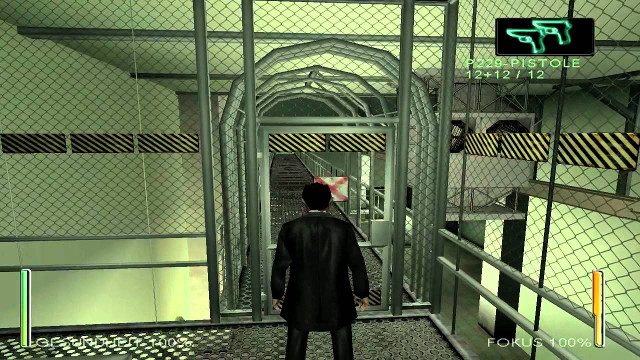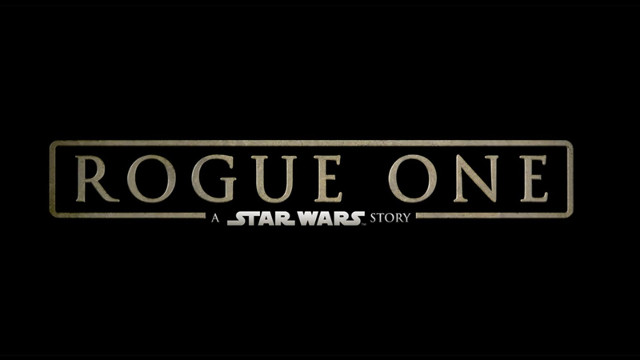The news of Star Wars Battlefront II being Canon with the Star Wars film series is not to be taken lightly or glossed over, certainly not glossed over in the way whatever idiot wrote this article earlier today (attractive as that idiot may be). A video game that directly affects and is affected by the Star Wars films, what are sure to be the highest-grossing movies of each year they release, which is every year until 2020? I’m interested.
As exciting as this news is, though, and as intriguing as the plot of Battlefront II is, giving you the perspective of the Empire immediately post-Return of the Jedi, I can’t help but wonder if this will ultimately be the best thing for it. The thing is, History has not been kind to video games that attempt to be cannon with the movies.
To be clear, this is not a simply tie-in; it’s not merely be a recreation of the events of the films, like the original Battlefront storylines. Battlefront II will tell a canon story that hasn’t been told by the films or TV series. This isn’t a new phenomenon, as several other video games have done this, to varying results.
Extra-Canon
A few games are neither canon, nor explicitly not canon. This is the type of game whose events don’t contradict anything that happened in a given canon, but they also haven’t been acknowledged as canon. This puts them in a sort of “extra-canon” limbo. Battlefront II has already been granted the coveted status of canon, but I'm still waiting for the talking suit from Disney to "clarify" those comments to the contrary.
Consider 2009’s Saw: The Video Game. It took place in between the first and second movies, following the main detective from the first game, David Tapp. The co-creators of Saw, Leigh Whannell and James Wan, even helped out on the game’s script. Still, though, what happened here isn’t considered canon. I’m tempted to say that’s a good thing, because the game itself wasn’t very good, and didn’t tell a particularly compelling story, but the same thing can be said about most of the Saw movies (this coming from someone who owns all of them on DVD). But this is a pretty innocuous example from a series that was already bad. As we'll see, extra-canon movie video games generally match the quality of their source material.
 Alien: Isolation wasn't official canon, but it told a good enough story to be.
Alien: Isolation wasn't official canon, but it told a good enough story to be.
Another extra-canon piece on the opposite end of the spectrum is Alien: Isolation. It doesn’t contradict anything that happens in the film – the Nostromo still gets ransacked and Ellen Ripley’s whereabouts are still unknown, and she may still go on to become a cloned Alien-hybrid, but, for now, we’re focusing on her Daughter, sometime after the events of Ridley Scott’s Alien. Isolation is the first and last example of a good movie tie-in, and it’s a shame it’s not considered canon, given that the story adds so much potential to the universe.
You’ll also find a game like Middle-Earth: Shadow of Mordor in this category, although hardcore fans might dispute certain events that take place in the game, and that was also considered a huge hit.
Firmly Canon
This is where every aspiring canon movie game wants to be, but it’s also where the dregs often lie. For whatever reason, the more canon a game gets, the worse it gets. I know, correlation isn’t causation, and there are certainly some exceptions, but it’s hard to ignore the bad ones.
Working backwards in time, one that comes most recently is 2013’s Star Trek. This was a canon story, with the game designed to be in line with the latest reboot series. Several minds behind the films were involved in the creation of the game at some level or another, including a few producers and the writer. The game may have focused too much on telling a Star Trek story that it forgot that it was also a game. It’s gameplay was lacking severely, coming off as a shameless rip-off of basically any third-person shooter on the market at the time. Our own review gave it a generous 2/5.
 Enter the Matrix might be the worst example of canon games, but it highlights their problems.
Enter the Matrix might be the worst example of canon games, but it highlights their problems.
Then we go to the infamous Enter the Matrix. This is perhaps the most clear-cut example of a canon video game. The Wachowskis were not just involved in the creation of the game; they wrote and directed it, and released it simultaneously with The Matrix Reloaded, which also starred two of the characters and actors in the video game.
Our review gave it a C-, which we now call a 1.5/5 by our current scale, largely because it was so painfully obvious that the game was released too soon, adhering too closely to a gimmick that no one cared to enjoy.
What’s going on here?
I mean really, why do games that are less official about their canon status tend to turn out better than games that are officially canon, with the full backing of a big movie studio? It’s a good question, and the answer might be contained within it. “Backing” might not have been the best word for how a studio interacts with a canon video game.
A studio views its intellectual property the way everyone expects: as a source of revenue. So, they don’t want anyone else either ruining or dictating the way that source of revenue unfolds. That’s why these canon games have to fit into a very small box, whereas non-canon or extra-canon games have more freedom.

I take a story like Rogue One: A Star Wars Story. It was canon, and, therefore, couldn’t do anything to mess with the greater canon of Star Wars, like (spoiler alert) leave any characters alive, but it also couldn’t have the dark tone that killing off every character would seemingly demand. Therefore, it was left in this state of limbo and mixed reception.
While not a video game, it is Star Wars canon, so it might be the most telling example of how Star Wars Battlefront II will be allowed to operate. Like Rogue One, BF2 will also fill in a major plot hole (why did the Rebels suddenly win after destroying the second Death Star?), but will it be allowed to do more? Will it be allowed to tie-in and influence the plot of subsequent movies? That’s a question only Nov. 17 can answer.







